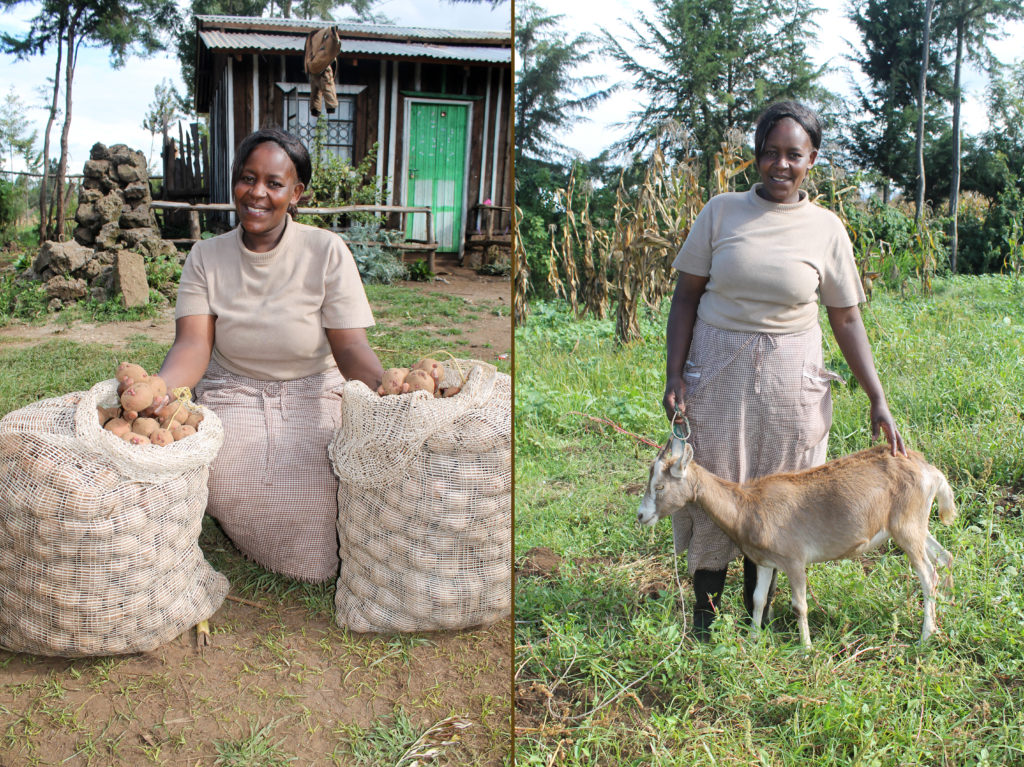Farmers across Kenya’s potato growing regions are learning to farm success thanks to a USAID funded program, Feed the Future Accelerated Value Chain Development (AVCD). A quickly growing staple in the local diet, the potato sector provides employment for 2 million Kenyans and is valued at $500 million annually. Yet, the estimated 800,000 potato farmers in Kenya are challenged by seed bottlenecks and diminished yields due to a reliance on uncertified local seed. The International Potato Center is working to reverse this trend by developing a robust network of decentralized seed multipliers that make quality seed potato more readily accessible to farmers.
Farming success with potatoes in Kenya
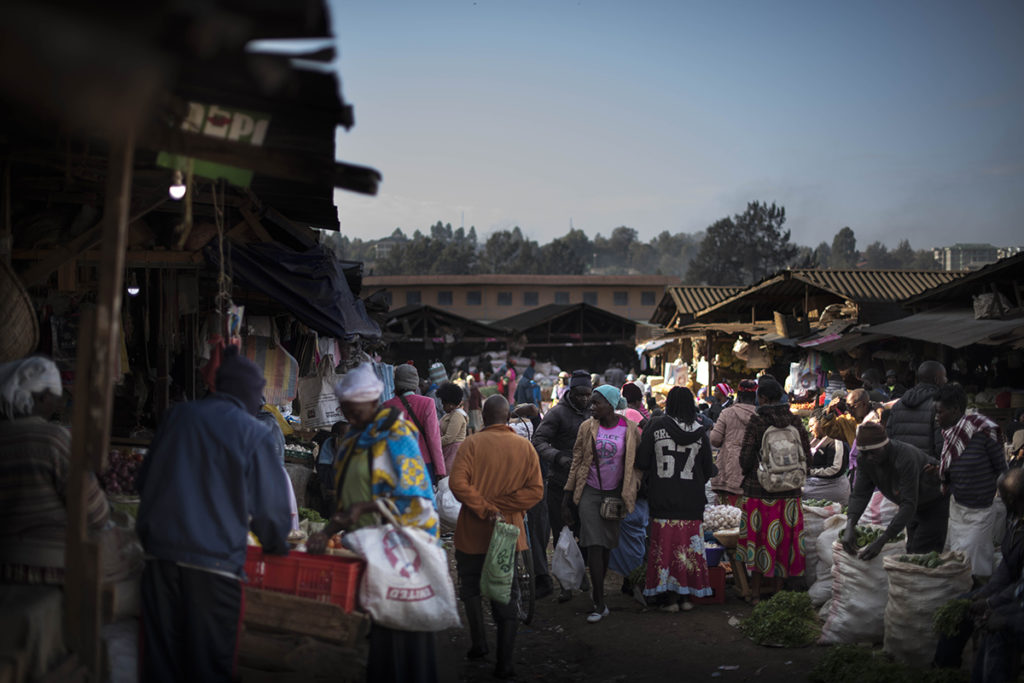
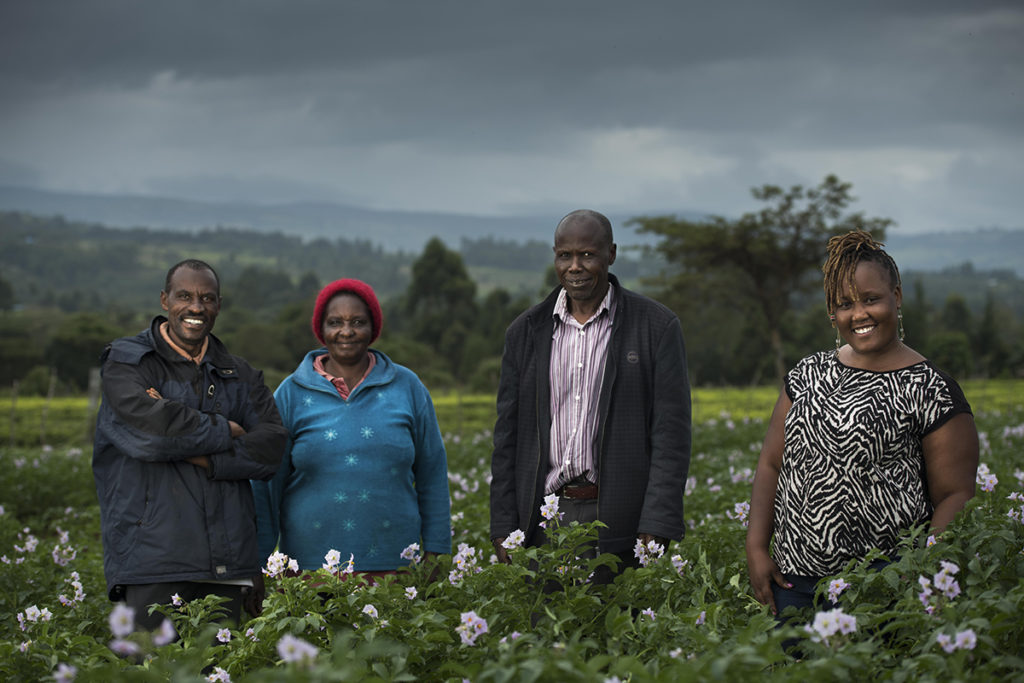
Quality seed is often difficult to access for rural smallholders in Kenya, forcing many farmers to rely on uncertified seed potato, which comes with the risk of using seeds from crops with a history of disease. This can result in low yields that average 7.3 tonnes per hectare or total crop failure. To jumpstart potato production in Kenya, the International Potato Center has established a network of Decentralized Seed Multipliers (DSMs) to make quality seed potato more readily available at the village level.
As a Decentralized Seed Multiplier Cecinta makes certified seed potato accessible to farmers in her village. In order to increase demand for clean seed potato, Cecinta provided a one- kilogram promotional pack to 96 interested farmers. Farmers were so enthusiastic about the results they are now pre-ordering seed for the next planting season.
Trained in best practices in potato farming, Cecinta, has become her village’s go-to person for farmers seeking her advice on how to boost their potato production.
“One sweet thing about teaching farmers is that you get a following; people who are keen to learn and do as you say,” Cecinta says. “One day while walking to the market, I overheard a gathering of villagers saying that I was a potato expert equipped with solutions to every emerging problem. I felt great, respected.”
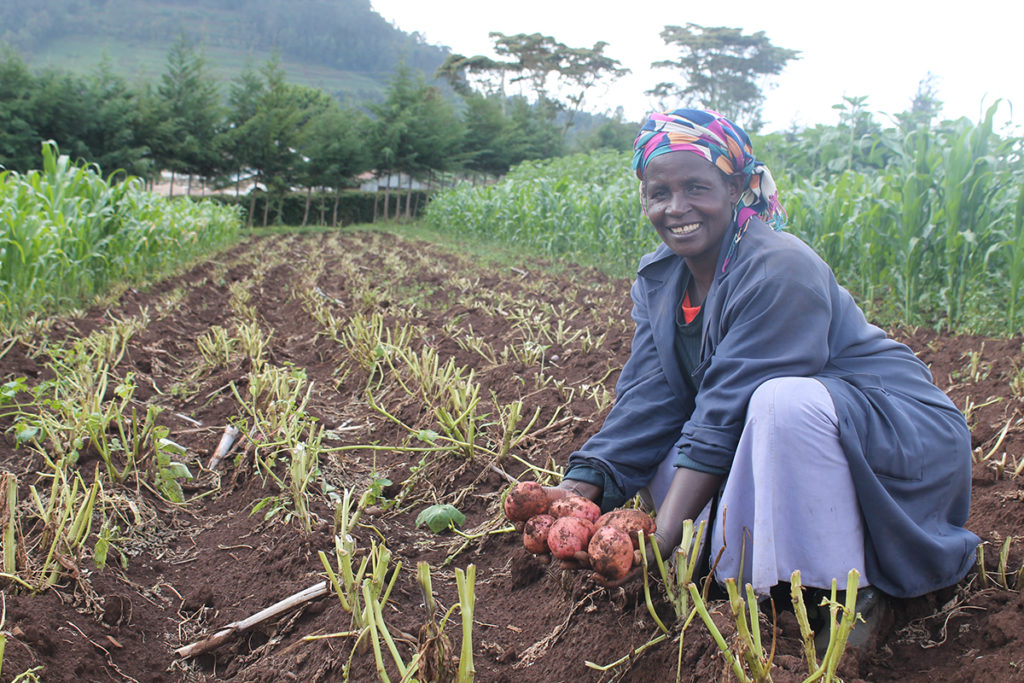
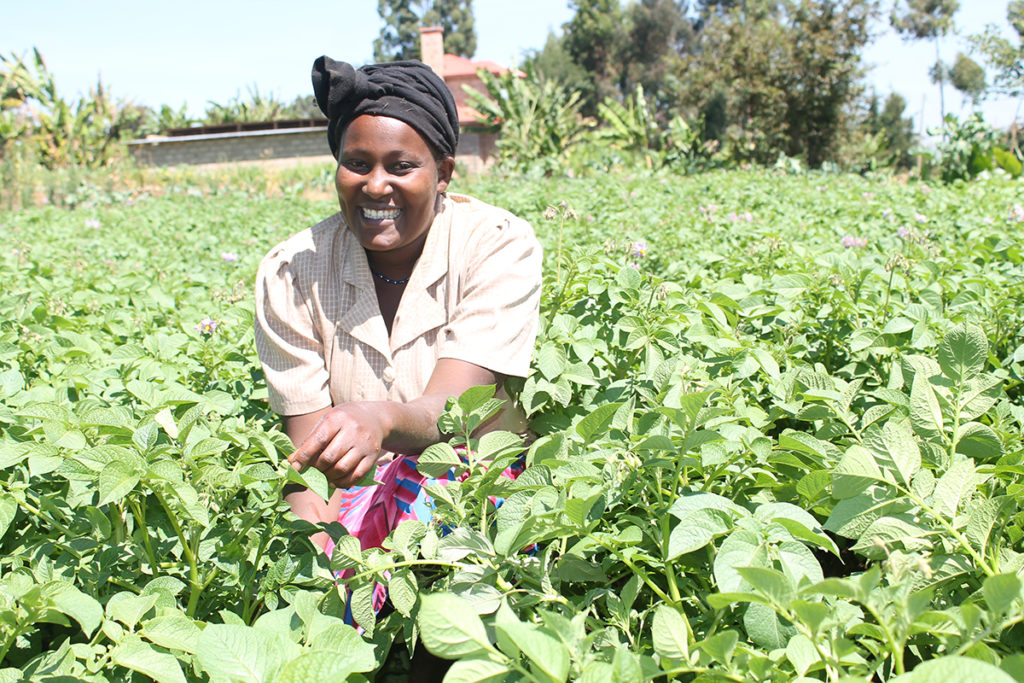
Doreen Wanja used to have to travel 30 kilometers from her village to purchase ware potato of unknown origin to plant in her fields. Such distances can make it difficult for farmers like Doreen to access certified seeds of improved varieties of potatoes. This year Doreen was able to pre-order clean seed from a Decentralized Seed Multiplier right in her village. “I bought this variety (Asante) because I loved how the one kg promotional pack performed. I harvested 18 kg from the one kg that I received in April last year! I was so impressed that I pre-paid KES 600 (USD 6) for 20 kg. I expect to harvest 300 kg in March,” says Doreen.
Sammy has seen his potato business prosper since he first adopted the crop. Originally a dairy farmer he decided to diversify when he heard about the opportunity to become a Decentralized Seed Multiplier. Keen to adopt best practices and new technologies he’s learned how to produce seed potato from potato cuttings that give much higher yield compared to use of tubers. He has also invested in irrigation allowing him to meet seed potato demand at the start of the planting season. He is now able to simultaneously have flowering potato plants while others are ready for harvest. He recently, improved his potato storage with the use of insect proof nets that also help regulate the air allowing the seed potatoes to sprout uniformly . Through his potato business he is now grossing an average of $4,000-$6,500 (USD) per hectare while making quality seed available at affordable prices to local farmers.

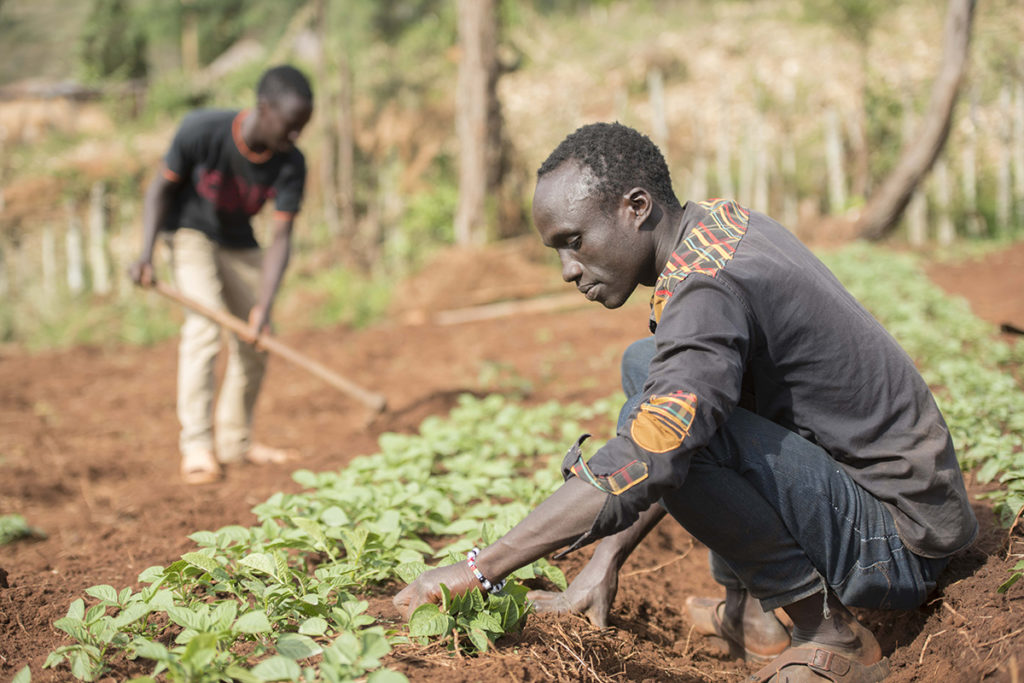
Ramping up potato production provides promising employment opportunities for Kenyan youth. An increase in productivity through ease of access to technologies and quality seed makes agriculture a more alluring prospect for youth who might otherwise migrate to the city in search of jobs. CIP is working to empower young people to take up lucrative business opportunities within the potato value chain. The youth train in business and entrepreneurial skills development and are actively developing three-year business plans on the value addition of potato.
Farmer Margaret Karuiru learned first hand what it means to harvest abundance. She transformed 1 kg of Asante certified seed potato, into 18 kg of clean seed potato, which she planted the following season and yielded a harvest of 110 kgs. She saved 10 kg for her family’s consumption and sold the surplus and used her earnings to purchase a goat. Margaret previously recycled 100kg of uncertified seed and would only reap 400kg of potatoes. By using quality seed and applying new techniques she learned from @FIPSAfrica she has dramatically increased her family’s #FoodSecurity and #Income.
“For years we could not harvest enough to eat and sell because we didn’t know how to plant,” Margaret says. She now looks forward to harvesting 1,000 kg of potatoes, more than double her previous harvests.
